Native Americans Voted Overwhelmingly for Trump in the Last Election While Their Tribal Leaders Lavished Millions on Kamala Harris and Democrats
At the same time, wealthy casino-fueled Native American Indian tribes have emerged among the largest donors to the last three Democrat presidential candidates.
According to NBC exit polls in the most recent presidential election, 64% of Native American voters voted for Donald Trump. At the same time, however, an analysis of Federal Election Commission records show that wealthy casino-fueled Native American Indian tribes have emerged among the largest donors to the last three Democrat presidential candidates, as well as the Democratic National Committee, the Democratic National Senatorial Committee, and the National Democratic Congressional Committee.
At the same time, those who served as the Assistant Secretary of the Interior Department for Indian Affairs, as well as the head of the Bureau of Indian Affairs, and the National Indian Gaming Commission in the last four presidential administrations have gone on to become extremely wealthy, working for Native American Indian tribes for whom they made extremely beneficial decisions while in public office.
Politics infects our current regulation and relationships with Native American Indian tribes who have benefited mightily from the 1988 Indian Gaming Regulatory Act (IGRA) signed into law by President Ronald Reagan to the detriment of Native American Indian tribes whose federal recognition has been unjustly terminated and whose lands have been unjustly taken by the U.S. Government.
In fact, among the largest donor money behind Vice President Kamala Harris and Minnesota Governor Tim Walz, besides the Union’s and Trial Lawyers, are the mega-rich Native American Indian casino Tribes who are currently operating multi-million dollar (even billion-dollar) casino gambling enterprises and pouring big money into the Harris/Walz campaigns, the National Democratic Party, the Democratic Senatorial Campaign Committee, the Democratic Congressional Campaign Committee, and giant Super-PAC’s boosting Kamala Harris’ candidacy.
During the 2024 election cycle, committees and SuperPACs supporting Kamala Harris have been given $5.8 million in campaign contributions by a consortium of gaming tribes, but only $21,000 has been given to conservative candidates. Since 2013, the Indian gaming industry has contributed over $58 million to Democratic Party candidates.
If this is shocking, it shouldn’t be, because all these mega-rich Native Americans are wealthy, prosperous, and healthy due to reforms regarding federal law and the governments historic relationships with indigenous tribes. Although many of these reforms have been passed by Republican presidents, like Nixon, Bush and Reagan, the Democrats are getting almost all the political contributions.
The Nixon administration has been the most pro-Indian administration of the 20th century, having passed historic laws that made groundbreaking contributions to Native American rights and sovereignty. Nixon signed the Indian Healthcare Act, passed the Indian Education Act of 1972, enacted the Menominee Restoration Act, increased the budget of the Bureau of Indian Affairs (BIA) by 214%, established the first special office on Indian Water Rights, passed the Indian Financing Act, Passed the Sub-marginal Lands Act, passed the Indian Self-Determination Act and pledged that all available BIA funds be arranged to fit priorities set by tribal governments themselves.
In 1970, President Nixon delivered a special message to Congress, advocating for a policy of self-determination without termination. This policy was aimed at empowering tribes to govern themselves and make decisions about their own futures. President Nixon’s support for self-determination over termination policies was a crucial turning point for Native American sovereignty.
Due to these many policy changes, Nixon is rightly viewed as the most helpful of any President, by most Native American leaders and communities who saw his administration as a genuine partner in advancing our rights and sovereignty. His efforts laid the foundation for future Republican leaders to engage with Native American communities. President Reagan and President Bush also made important contributions to Native Americans with support is areas of tribal sovereignty, economic development, and cultural preservation.
Ronald Reagan’s administration continued the policies of self-determination set forth by Nixon. Reagan emphasized a policy of government-to-government relations between the United States and Native American tribes. His administration supported several pieces of legislation aimed at enhancing tribal sovereignty, including the Indian Tribal Government Tax Status Act of 1982, which recognized the tax-exempt status of tribal governments. President Reagan administration also encouraged economic development on reservations through deregulation and initiatives aimed at fostering tribal businesses. He supported the establishment of tribal casinos as a means for economic self-sufficiency.
The Indian Gaming Regulatory Act of 1988, though passed after Reagan left office, was largely shaped by the policies and attitudes toward economic development on reservations that were prominent during his presidency, as was his philosophy of reducing federal control and promoting self-sufficiency aligned with the desires of some tribes to reduce their dependence on federal programs and gain more control over their economic and governmental affairs.
The George H.W. Bush administration saw a continuation of the policies of Nixon and Reagan. President Bush maintained the policies of self-determination and supported tribal governance and autonomy through various measures, such as supporting the tribal self-governance demonstration project that allowed tribes more control over their resources and affairs and the passage of the Native American Graves Protection and Repatriation Act.
Bush’s administration increased efforts to establish a more direct dialogue with tribal nations, encouraging regular consultations and cooperation on issues affecting Native American communities.
Surprisingly contributions to Republicans from casino-rich federally recognized tribes have been paltry. While the Harris/Walz campaign, Democrat National Committees and SuperPACs supporting that ticket have received more than $5.8 million, Native American tribes gave a dismal $21,000 to Republican candidates.
Many Native Americans are encouraged that during his campaign for President, Donald Trump designated former Congresswoman Tulsi Gabbard, Robert F. Kennedy, Jr., and Senator Markwayne Mullin of Oklahoma to formulate policies regarding Indian Country.
The appointment of North Dakota Governor Doug Burgum as Secretary of the Interior leaves no clue as to how the incoming Trump Administration will deal with the U.S. Government’s relations with Native Americans. We can only hope that those who are selected to be Assistant Secretary of the Interior for Indian Affairs, as well as the incoming head of the Bureau of Indian Affairs, will be nonpolitical, uninterested in their own future personal enrichment, and committed to justice and fairness toward Native Americans in the performance of there duties.




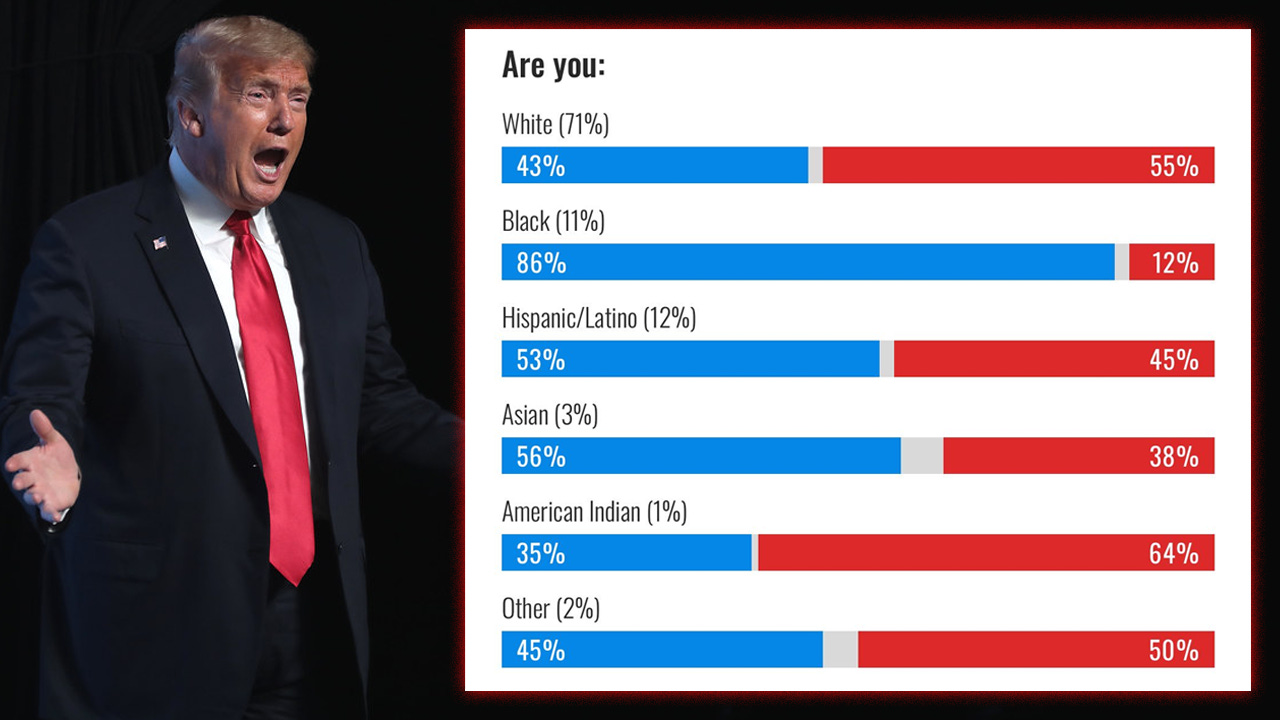
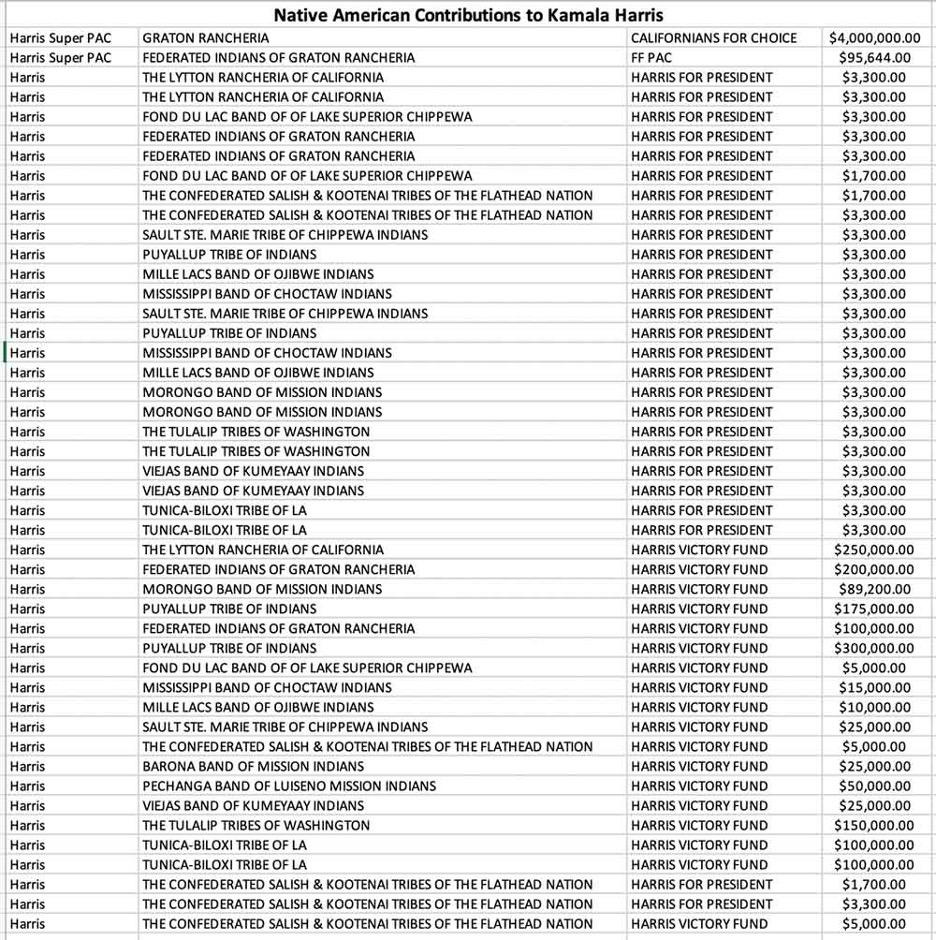
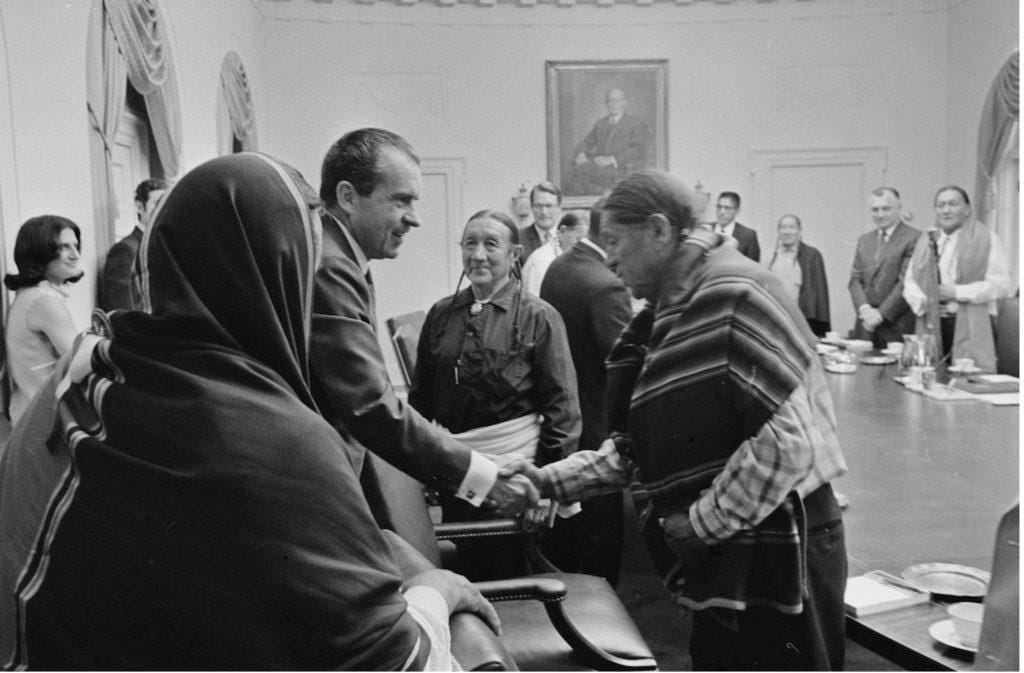
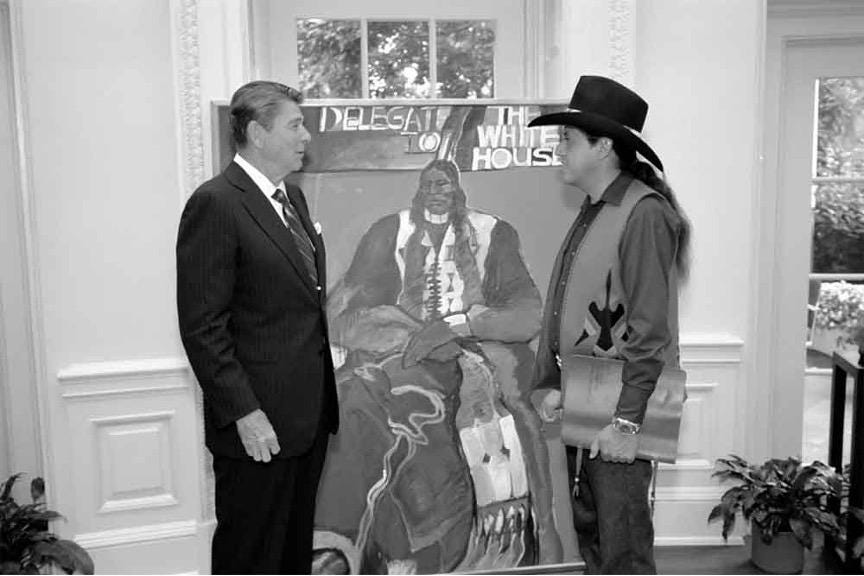
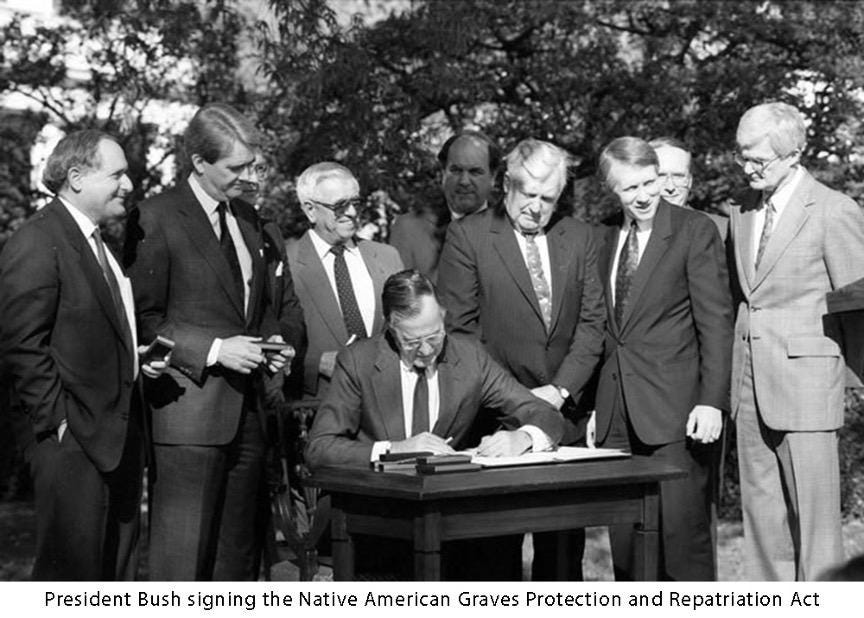
This is a manifestation of McCain/Feingold Campaign Reform Act 2002. It created Indian Reservation Gambling as a Government endorsed money laundering operation. But tribal members vote overwhelmingly MAGA.
Who would like to bet against me that the explanation for the Indian PEOPLE supporting Pres. Trump
& the Triple Leaders supporting, with money, the Democrats? Likely the same reason the sea resort of imbalance exists in the workers Union Organizations! CORRUPTION the Democrat ultra-speciality!
Look to the schools for the Indians as the origin of the problem just like in the regular schools poor learning and indoctrination by the teachers as well! And massive subsidies available to the Tribes are the fuel of the corruption! THC